I want to ask a question about finding the maxima of a set of peaks using matplotlib and numpy.
I have been given data containing peaks and asked to calculate the maxima of the set of peaks.
Below is a picture of the peaks.
I discovered the find_peaks method and attempted to solve the problem using this.
I wrote the following block of code in Jupyter:
%pylab inline
from scipy.signal import find_peaks
testdata = loadtxt("testdata.dat", usecols=(0,1))
testdata_x = testdata[100:200,0]
testdata_y = testdata[100:200,1]
plot(testdata_x, testdata_y)
show()
peaks = find_peaks(testdata_y)
peaks
However, I get the following output for peaks:
(array([ 7, 12, 36, 40, 65, 69, 93, 97]), {})
I cannot understand why I get an output as above and am struggling to find a solution.
I attempted also to pass the following:
peaks = find_peaks(testdata_y, testdata_x)
but this was to no avail.
How can I sort out the matter?
I have attached the data file here as a download link if necessary (hoested on filehosting.org)
